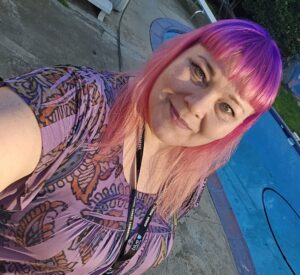For those of you in supervisory positions – whether designated “managers” or leaders of another kind, this article is for you!
A good leader is someone whose people are productive, innovative and excited to be part of the team. How does an employee — particularly one new to a leadership role — develop the skills to create and manage such a team?
Managers are often not trained in specific leadership skills, so they tend to default to whatever management style they have observed. Many managers use a traditional management style of telling, supervising and disciplining.
But there’s a better way: Managers should instead learn coach-style leadership, which involves asking, empowering and guiding. This style of leadership develops strong relationships. It is a way of being with others that is open, inquisitive and challenging. It empowers people to be accountable and resourceful in order to achieve the results they desire.
What does this mean for leaders, and why are so many of them seeking coach training in order to learn these skills and bring them into their organizations? “Use of coaching tools as a business owner and manager — including enrollment, accountability and communication — has increased my business revenue, grown my practice and changed the way I relate to employees and clients,” says Rocklin-based attorney Ali Goff, owner of Law Offices of Alexandria Goff, who I train in coach-style leadership.
Coaching involves two elements: a way of being and a skill set of coaching.
Coach-style leaders are adept at cultivating openness and ownership in others because they come from a place of curiosity, deep listening and non-judgment. These leaders create a high level of rapport and trust with their employees.
How do you adopt the coach’s way of being? First you must let go of judgment and assume that people are doing their best. This statement raises the hackles of many managers who say things like, “My employees are phoning it in,” or my personal favorite, “Millennials are just entitled.” The problem is when you make these assumptions, you are cultivating an environment of judgment and criticism: People can tell when they’re being judged and criticized, and this promotes a level of disengagement found in many organizations today. To adopt the coach’s way of being, you must become very curious about why people do what they do.
The skill set of coaching includes, among many others:
- personal accountability and the ability to inspire it in others
- curiosity
- reflective listening
- active trust-building
- delivering and requesting feedback
The model below encompasses many of these skills. If you master this model, you’ll be on your way to effectively coaching your employees.
Let’s say your employee is late on a project or does it incorrectly. Here’s how you should respond:
1. First, make sure there was a clear agreement. For example, “What did you believe your agreement was on this project?” Again, ask this with curiosity and a lack of judgment.
2. If you decide there was a clear agreement, ask questions about what happened for the employee to produce the result he did. Ask open-ended questions (those that seek information) as opposed to closed-ended questions (those that call for a yes or no answer). The ability to ask curious questions is a hallmark of coaching and a skill many managers do not possess. If you already think you know what happened, set that aside and instead focus on listening.
A curious question might be, “I am noticing you were late on this project and I wanted to ask you what happened?” Then listen, and follow up with more questions. You are not just gathering information; you are conveying that you are interested, which builds trust and rapport. Most importantly, you are encouraging the employee to think through what happened for himself so he can do things differently in the future.
3. Promote ownership. Ask the employee what he or she will do to produce a different result next time. Don’t tell them what to do. How the employee produces the desired result is far less important than the fact they produce the desired result. People are much more likely to carry through on plans of action they have come up with themselves.
4. Schedule a follow-up meeting to see if the new plan is working. The follow-up meeting promotes accountability. Additionally, their idea may not work perfectly and this gives them a chance to check the result and try again.
5. Repeat. If you do your follow-up meeting and issues still occur, implement the above steps again — be curious and ask what the person can do differently and what they might need from you. “Differently” is the key word here. If he again says, “I’ll run spell check,” it is appropriate for you to ask, “That is what you said in the last meeting. Why did that not work? What do you need to do now that is different?” Make sure your questions are specific and that you schedule another follow-up at the end of your conversation.
Each step is a tool on its own. Practice each step and practice the entire formula to become a more effective leader for your team.






